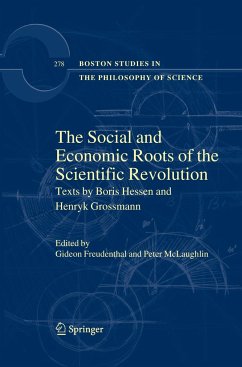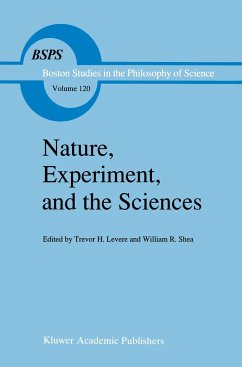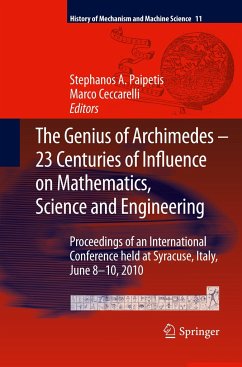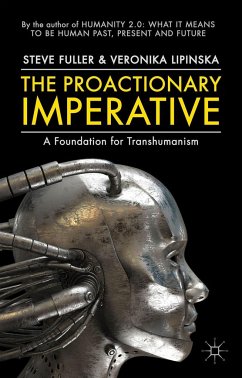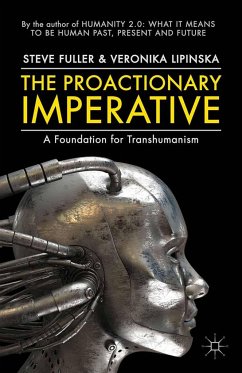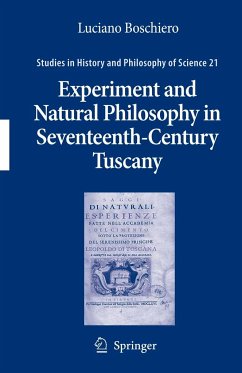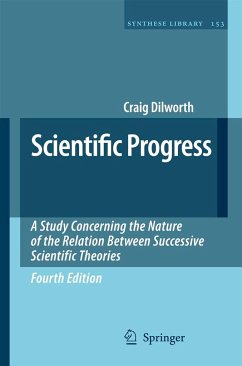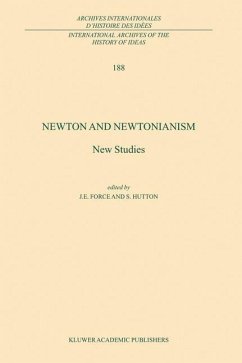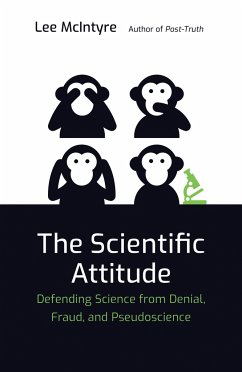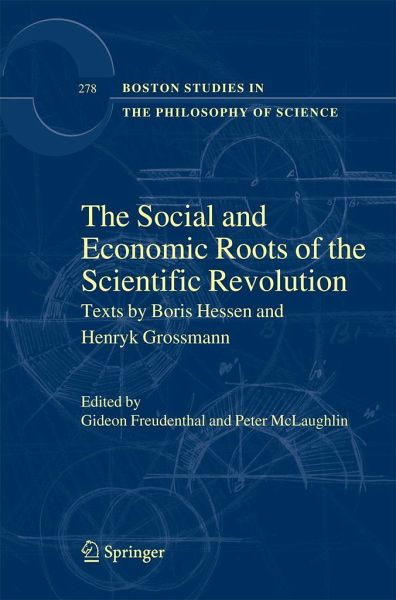
The Social and Economic Roots of the Scientific Revolution
Texts by Boris Hessen and Henryk Grossmann
Herausgegeben: Freudenthal, Gideon; McLaughlin, Peter

PAYBACK Punkte
79 °P sammeln!
The volume collects classics of Marxist historiography of science, including a new translation of Boris Hessen's "The Social and Economic Roots of Newton's Principia" (1931), Henryk Grossmann's "The Social Foundation of Mechanistic Philosophy and Manufacture" (1935) and his Descartes' New Ideal of Science. Universal Science vs. Science of an Elite, published here for the first time. These three papers, along with two very short pieces, present the classical Marxist analysis of the relation of science and technology.
In a detailed introductory essay the editors analyze the main arguments of these authors. They show that Hessen and Grossmann never attempted to explain the rise of modern science by the utilitarian motives of the scientists. On the contrary, they argue not that science developed in order to improve technology but rather by means of the study of technology. Marshalling a wealth of historical evidence, Hessen and Grossmann argue that technology served as the laboratory of scientific mechanics. This is the reason thatin physics mechanics developed first and that thermodynamics and electrodynamics followed later when the respective technologies (steam engines and dynamos) had made other aspects of nature experimentally manageable. Finally, the editors address Hessen's thesis, that ideological commitments in the age of Newton prevented the formation of a consistent materialist world view on the basis of the new science.
In a detailed introductory essay the editors analyze the main arguments of these authors. They show that Hessen and Grossmann never attempted to explain the rise of modern science by the utilitarian motives of the scientists. On the contrary, they argue not that science developed in order to improve technology but rather by means of the study of technology. Marshalling a wealth of historical evidence, Hessen and Grossmann argue that technology served as the laboratory of scientific mechanics. This is the reason thatin physics mechanics developed first and that thermodynamics and electrodynamics followed later when the respective technologies (steam engines and dynamos) had made other aspects of nature experimentally manageable. Finally, the editors address Hessen's thesis, that ideological commitments in the age of Newton prevented the formation of a consistent materialist world view on the basis of the new science.
The texts of Boris Hessen and Henryk Grossmann assembled in this volume are important contributions to the historiography of the Scienti?c Revolution and to the methodology of the historiography of science. They are of course also historical documents, not only testifying to Marxist discourse of the time but also illustrating typical European fates in the ?rst half of the twentieth century. Hessen was born a Jewish subject of the Russian Czar in the Ukraine, participated in the October Revolution and was executed in the Soviet Union at the beginning of the purges. Grossmann was born a Jewish subject of the Austro-Hungarian Kaiser in Poland and served as an Austrian of?cer in the First World War; afterwards he was forced to return to Poland and then because of his revolutionary political activities to emigrate to Germany; with the rise to power of the Nazis he had to ?ee to France and then Americawhilehisfamily,whichremainedinEurope,perishedinNaziconcentration camps. Our own acquaintance with the work of these two authors is also indebted to historical context (under incomparably more fortunate circumstances): the revival of Marxist scholarship in Europe in the wake of the student movement and the p- fessionalization of history of science on the Continent. We hope that under the again very different conditions of the early twenty-?rst century these texts will contribute to the further development of a philosophically informed socio-historical approach to the study of science.





